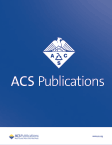摘要 PO4-13-08:在早期乳腺癌患者中,循环肿瘤细胞(CTCs)的机械调理(MeCo)评分高于原发肿瘤,而在转移性乳腺癌患者中,转移灶的机械调理(MeCo)评分甚至高于CTCs。
IF 3.4
Q2 PUBLIC, ENVIRONMENTAL & OCCUPATIONAL HEALTH
引用次数: 0
摘要
背景:机械调理(MeCo)评分是原发性乳腺肿瘤中癌细胞早期获得的基因表达特征,反映了癌细胞对基质硬度(类似纤维化的基质硬度)的反应能力。此外,染色质对硬度的重塑使癌细胞即使在没有原发肿瘤微环境机械刺激的情况下,例如在通过血液循环扩散转移的过程中,仍能保持其侵袭性特征。重要的是,与低MeCo评分相比,高MeCo评分肿瘤患者患转移性乳腺癌的风险更高(P< 0.0001;HR=2.2,95%CI 1.7-2.7;Watson等人,2021年,PMID: 34192535)。此外,循环肿瘤细胞(CTC)与较高的转移扩散率有关,因此在乳腺癌患者的循环中检测到 CTC 是乳腺癌转移的重要预后生物标志物。除了按血容量单位计数外,CTC 的具体预后特征尚未得到充分探讨。我们试图确定,与原发肿瘤相比,CTCs 是否保留了较高的 MeCo 评分,以及这些评分在乳腺癌晚期转移部位是否保持不变。方法:从外周血中分离 CTCs:从两个患者队列的外周血中分离 CTCs:使用免疫磁性富集/FACS 方法分离 II-III 期乳腺癌患者的 CTCs(Lang 等人,2018 年,PMID:29868978);使用 ANGLE Parsortix 微流控系统分离转移性乳腺癌患者的 CTCs(Ring 等人,2022 年,PMID:35000083)。使用 RNA-seq 对早期和晚期队列的 CTCs 以及匹配的原发肿瘤(PT)和转移灶(MET)分别进行了基因表达谱分析。采用量化归一化方法对不同组群进行比较。按照 Watson 等人 2021 年的方法计算了所有样本的 MeCo 分数。Wilcoxon 匹配对符号秩检验用于比较每个队列中匹配样本的 MeCo 分数;Mann-Whitney 非配对检验用于比较不同队列中 CTC 的 MeCo 分数。结果在 12 对早期乳腺癌患者的 CTCs 和 PT 中,CTCs 的 MeCo 评分明显高于与其匹配的 PTs(P=0.026)。此外,在 26 对转移性患者的 CTC 和 MET 中,MET 的 MeCo 评分明显高于匹配的 CTC(p=0.0004)。尽管 CTC 分离策略不同(表位依赖性和微流体大小梯度),但早期和晚期乳腺癌 CTC 的 MeCo 评分相似。在可评估的 CTC、MET 和 PT 样本中,MeCo 评分中 98% 的基因都存在。结论:我们的研究结果表明,在早期和晚期乳腺癌中,CTC 的 MeCo 评分分别高于 PT 和 MET。因此,在乳腺癌的整个转移级联过程中,MeCo 评分逐渐升高。这些研究结果表明,在转移过程中,即使癌细胞通过血液循环转移,基质硬度的初始诱导作用也会消失,但机械调节作用仍会保留。此外,这些研究结果还证明,MeCo评分越高的癌细胞越能适应转移过程,而且有可能被转移过程选中。重要的是,这些发现提供了 CTC 的一个新特征--机械调理(MeCo),它与较高的转移能力有关。此外,由于 CTC MeCo 评分即使在早期乳腺癌中也会升高,因此除了 CTC计数外,它还可以为预测乳腺癌患者的转移风险提供一种潜在的预后工具。引用格式:Gus Mouneimne, Adam Watson, Adam Grant, Daniel Campo, Alexander Ring, Pushpinder Bains, Julie Lang.在早期乳腺癌中,循环肿瘤细胞(CTCs)的机械调理(MeCo)评分高于原发肿瘤,而在转移性乳腺癌中,转移灶的机械调理(MeCo)评分甚至高于 CTCs [摘要]。在:2023 年圣安东尼奥乳腺癌研讨会论文集;2023 年 12 月 5-9 日;德克萨斯州圣安东尼奥。费城(宾夕法尼亚州):AACR; Cancer Res 2024;84(9 Suppl):Abstract nr PO4-13-08.本文章由计算机程序翻译,如有差异,请以英文原文为准。
Abstract PO4-13-08: Mechanical conditioning (MeCo) score is higher in circulating tumor cells (CTCs) compared to primary tumors in early-stage breast cancer and even higher in metastases compared to CTCs in metastatic breast cancer
Background: The mechanical conditioning (MeCo) score is a gene expression signature that is acquired early by cancer cells in the primary breast tumor and is reflective of their responsiveness to matrix stiffness (fibrotic-like matrix rigidity). Further, chromatin remodeling in response to stiffness allows cancer cells to retain their aggressive features even in the absence of mechanical stimulation by the primary tumor microenvironment, for instance, during their dissemination through the circulation in metastasis. Importantly, patients who have high MeCo score tumors are at higher risk of developing metastatic breast cancer, compared to low MeCo scores (p< 0.0001; HR=2.2, 95%CI 1.7-2.7; Watson et al 2021, PMID: 34192535). Moreover, circulating tumor cells (CTCs) are associated with higher rate of metastatic dissemination, making CTC detection in the circulation of breast cancer patients a significant prognostic biomarker for breast cancer metastasis. Beyond their enumeration per blood volume units, specific prognostic features of CTCs are not fully explored. We sought to determine whether, compared to primary tumors, CTCs retain high MeCo scores and whether these scores are maintained during late-stage breast cancer in the metastatic sites.
Methods: CTCs were isolated from peripheral blood of two patient cohorts: stage II-III breast cancer patients using immunomagnetic enrichment/FACS methodology (Lang et al 2018, PMID: 29868978) and of metastatic breast cancer patients using ANGLE Parsortix microfluidics system (Ring et al 2022, PMID: 35000083). Gene expression profiling using RNA-seq was performed in CTCs and in matching primary tumors (PT) and metastases (MET) for the early-stage and late-stage cohorts, respectively. A quantile normalization approach was used to allow comparison across cohorts. MeCo scores were computed for all samples as per Watson et al 2021. Wilcoxon matched-pairs signed rank test was performed for comparison of MeCo scores from matching samples within each cohort; Mann-Whitney unpaired test was used to compared MeCo scores of CTCs across cohorts.
Results: In 12 pairs of early-stage breast cancer patient CTCs and PT, MeCo scores of CTCs were significantly higher than their matched PTs (p=0.026). Furthermore, in 26 pairs of metastatic patient’s CTCs and MET, MeCo scores of METs were significantly higher than matching CTCs (p=0.0004). MeCo scores of CTCs were similar between early- and late-stage breast cancer despite differing CTC isolation strategies (epitope-dependent and microfluidics size gradient). 98% of genes in the MeCo score were present in the evaluable CTC, MET and PT samples.
Conclusions: Our results show that the MeCo score is higher in CTCs compared to PTs and in METs compared to CTCs in early- and late-stage breast cancer, respectively. Therefore, the MeCo score is progressively higher throughout the metastatic cascade in breast cancer. These findings demonstrate that mechanical conditioning is retained during metastatic progression, even as cancer cells transition through the circulation where the initial induction by matrix stiffness is lost. Further, these findings support that cancer cells with higher MeCo scores are more competent with–and potentially selected for by–metastatic progression. Importantly, these findings provide a novel feature of CTCs, mechanical conditioning (MeCo), which is associated with higher capacity for metastasis. Further, since the CTC MeCo score is elevated even in early-stage breast cancer, it could provide, in addition to CTC enumeration, a potential prognostic tool to predict metastatic risk in breast cancer patients.
Citation Format: Gus Mouneimne, Adam Watson, Adam Grant, Daniel Campo, Alexander Ring, Pushpinder Bains, Julie Lang. Mechanical conditioning (MeCo) score is higher in circulating tumor cells (CTCs) compared to primary tumors in early-stage breast cancer and even higher in metastases compared to CTCs in metastatic breast cancer [abstract]. In: Proceedings of the 2023 San Antonio Breast Cancer Symposium; 2023 Dec 5-9; San Antonio, TX. Philadelphia (PA): AACR; Cancer Res 2024;84(9 Suppl):Abstract nr PO4-13-08.
求助全文
通过发布文献求助,成功后即可免费获取论文全文。
去求助
来源期刊

ACS Chemical Health & Safety
PUBLIC, ENVIRONMENTAL & OCCUPATIONAL HEALTH-
CiteScore
3.10
自引率
20.00%
发文量
63
期刊介绍:
The Journal of Chemical Health and Safety focuses on news, information, and ideas relating to issues and advances in chemical health and safety. The Journal of Chemical Health and Safety covers up-to-the minute, in-depth views of safety issues ranging from OSHA and EPA regulations to the safe handling of hazardous waste, from the latest innovations in effective chemical hygiene practices to the courts'' most recent rulings on safety-related lawsuits. The Journal of Chemical Health and Safety presents real-world information that health, safety and environmental professionals and others responsible for the safety of their workplaces can put to use right away, identifying potential and developing safety concerns before they do real harm.
 求助内容:
求助内容: 应助结果提醒方式:
应助结果提醒方式:


